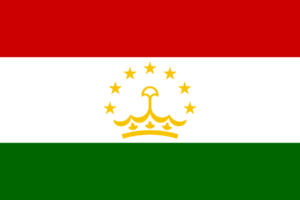Prosecutors at all levels, like other public officials must accountable when they have been involved in violations of human rights or other breaches of professional standards, including in proceedings based on complaints brought by individuals.{{1}}
Disciplinary offences must be defined in law or lawful regulations, and complaints alleging misconduct must be processed expeditiously and fairly in the context of fair procedures before an independent and impartial body. Prosecutors who are the subject of allegations of misconduct must be afforded a fair hearing and the decision must be based on established standards of professional conduct, and subject to independent review.{{2}}
The High Judicial Council, once established, will be responsible for making decisions on any disciplinary measures taken concerning prosecutors.{{3}}
Meanwhile during the transitional period, the new disciplinary council as described above in Section B(4) on the accountability of judges, which was established under the Law No. 2013-13, is in operation and can adjudicate on disciplinary proceedings against prosecutors. As noted above, the ICJ considers that the procedure in place does not fully comply with international standards.
[[1]]1. Special Rapporteur on the independence of judges and lawyers, Report to the Human Rights Council, UN doc A/HRC/20/19 (7 June 2012), paras. 82-87, and 120-123.[[1]]
[[2]]2. UN Guidelines on the Role of Prosecutors, [expand title=”Guideline 21-22;”]
21. Disciplinary offences of prosecutors shall be based on law or lawful regulations. Complaints against prosecutors which allege that they acted in a manner clearly out of the range of professional standards shall be processed expeditiously and fairly under appropriate procedures. Prosecutors shall have the right to a fair hearing. The decision shall be subject to independent review.
22. Disciplinary proceedings against prosecutors shall guarantee an objective evaluation and decision. They shall be determined in accordance with the law, the code of professional conduct and other established standards and ethics and in the light of the present Guidelines.
[/expand] Principles and Guidelines on the Right to a Fair Trial and Legal Assistance in Africa, Adopted by the African Commission on Human and People’s Rights, [expand title=”Article F(n)-(o);”]
(n) Disciplinary offences of prosecutors shall be based on law or lawful regulations. Complaints against prosecutors, which allege that they acted in a manner that is inconsistent with professional standards, shall be processed expeditiously and fairly under appropriate procedures prescribed by law. Prosecutors shall have the right to a fair hearing including the
right to be represented by a legal representative of their choice. The decision shall be subject to independent review.
(o) Disciplinary proceedings against prosecutors shall guarantee an objective evaluation and decision. They shall be determined in accordance with the law, the code of professional conduct and other established standards and ethics.
[/expand] International Association of Prosecutors, Standards of Professional Responsibility and Statement of the Essential Duties and Rights of Prosecutors, [expand title=”Article 6(f)-(g).”]
In order to ensure that prosecutors are able to carry out their professional responsibilities independently and in accordance with these standards, prosecutors should be protected against arbitrary action by governments. In general they should be entitled: … (f) to expeditious and fair hearings, based on law or legal regulations, where disciplinary steps are necessitated by complaints alleging action outside the range of proper professional standards; (g) to objective evaluation and decisions in disciplinary hearings;
[/expand][[2]]
[[3]]3. 2014 Constitution, [expand title=”Article 114.”]
The High Judicial Council ensures the sound functioning of the justice system and respect for its independence. The General Assembly of the three judicial councils proposes reforms and gives its opinions on draft laws related to the judicial system. Such laws must be reviewed by the General Assembly. Each of the three councils is responsible for making decisions on the professional careers of judges and on disciplinary measures taken against them.
The High Judicial Council shall prepare an annual report and submit it, in the month of July at the latest, to the President of the Republic, the Speaker of the Assembly of the Representatives of the People, and the Head of Government. The report shall be published.
The Assembly of the Representatives of the People shall discuss the annual report at the beginning of the judicial year in a plenary session, in dialogue with the High Judicial Council.
[/expand][[3]]





